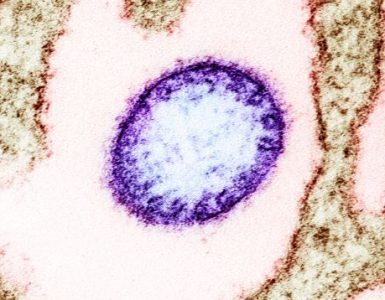Experts say the rise in new cases of coronavirus in Nepal comes as no surprise after the rise in new cases in India and given the uninterrupted cross-border movement.
The ongoing rise in Covid cases is a clear sign that a new virus variant is penetrating the communities, infectious disease experts in Nepal said on Tuesday.
They warned that the country could witness a big rise in new cases in the coming days since no measures have been taken to prevent the infection’s spread.
“The actual number of positive cases could be several times more in communities than the numbers unveiled by the health authorities, as all infected people are not testing themselves,” said Dr Rajiv Shrestha, an infectious disease expert at the Dhulikhel Hospital.“ And, the rise might have been caused by a new virus variant. Authorities should resume active case finding, which was stopped months ago.”
Nepal on Tuesday recorded 24 new Covid cases. On Monday, the figure was 69—twenty-five in 488 polymerase chain reaction tests and 44 in 778 antigen tests. The test positivity rate is more than five percent.
The Ministry of Health and Population, however, said that the 69 cases represent a cumulative figure of the past four days. But on Sunday too, 16 people had tested positive and the ministry claimed that it was the cumulative figure of the cases that had yet to be documented over the past five days.
Officials say that the majority of the people testing positive for coronavirus, of late, are those who returned home from India.
Lately, India has been reporting a sharp rise in coronavirus cases. The country on Tuesday recorded four deaths and 1,573 fresh coronavirus infections, according to media reports.
Several states and territories of India, including Delhi, Maharashtra, Gujarat, Tamil Nadu, Uttar Pradesh, Bihar, West Bengal, Uttarakhand and Telangana saw a surge in new cases. Uttar Pradesh, Bihar, West Bengal and Uttarakhand are states bordering Nepal.
Experts say the rise in new cases of coronavirus in Nepal comes as no surprise after the rise in new cases in India and given the uninterrupted cross-border movement. Thousands of people from both countries enter each other’s territories every day on top of the large number of those who use unregulated points along the porous borders to cross over to the other side.
Health Ministry officials said that they have already alerted the agencies concerned about the risks, asking them to step up surveillance. The problem, however, is that almost all polymerase chain reaction (PCR) laboratories set up in the districts have been shut for months. The contract period of lab technicians expired months ago, which means the laboratories do not have the human resources required to run those facilities or carry out testing on swab samples of suspected cases.
Moreover, most districts in the Tarai region bordering India do not have health desks.
“The time has come to start active case finding and for that, we need to start community testing,” said Dr Janak Koirala, an infectious disease expert. “Along with this, we should also ramp up booster vaccination drives. Vaccine doses should be secured for all eligible populations and the public health measures need to be strictly enforced.”
Doctors say that even if the new virus variant does not severely impact the young population, the elderly and those with weak immunity are at a high risk. The rise in infections also increases the severity and hospitalisation rate, the doctors added.
Scientists in India say that a new sub-variant of Covid, XBB.1.16, is responsible for the recent surge in cases. They, however, say people in India have developed a hybrid immunity due to vaccination and natural infection, so the current Covid variant will not lead to hospitalisations and severity. The Indian government has advised people to wear face masks, avoid crowds and complete their vaccination doses if they haven’t already done so.
Officials at the National Public Health Laboratory, which conducts whole-genome sequencing to identify virus variants on a regular basis, said that no new virus variant has been detected in Nepal so far.
“We have already brought swab samples of infected persons from Sudurpaschim Province and have asked them to be sent to the provincial health laboratories,” said Dr Runa Jha. “We will bring those swab samples to Kathmandu and carry out whole-genome sequencing to identify the virus variant.”
Whole-genome sequencing is a comprehensive method of analysing the entire DNA sequence of an organism’s genes. Researchers believe that whole-genome sequencing of coronavirus could help track the properties of the virus and the infection’s severity.
As many as 12,020 Covid-related deaths have been reported in Nepal so far, according to an official count.

















